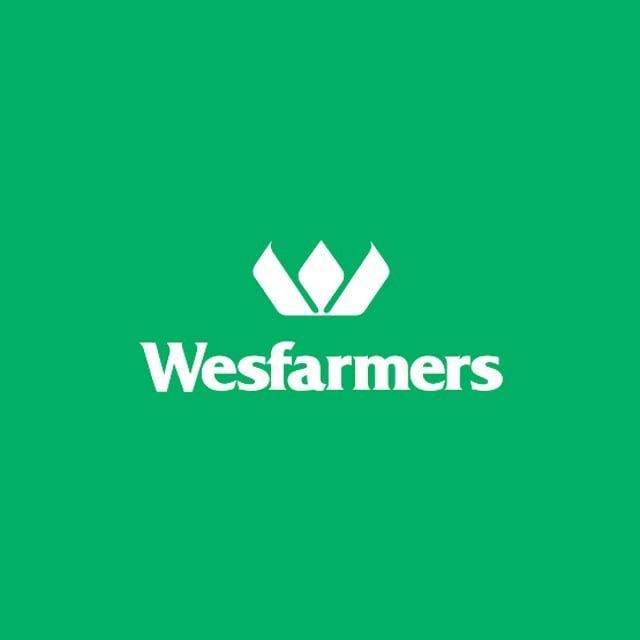

Pic: Midjourney
Editors' Note: Many Fast News images are stylised illustrations generated by Dall-E. Photorealism is not intended. View as early and evolving AI art!

Catch tumbles downward,
Restructures, reset a must
Customers decline

Catch takes a fall in Wesfarmers' full year results, ecommerce unit posts 25.9% revenue revenue slump as Bunnings, Kmart, Officeworks hold steady
Bunnings, Kmart and Officeworks have all held firm, chalked up single-digit revenue and earnings gains for the full year to 30 June 2024, but fellow ecommerce offering in the Wesfarmers stable, Catch Group, has taken a massive tumble into the red.
According to the latest FY2Y Wesfarmers financial report, Bunnings group closed out the year with a 2.3% lift in revenue to $18.968 billion, and earnings of $2.251bn, up 0.9% year-on-year. Although Target saw a slight decline in sales (4.5%), the duo of Target and Kmart also saw a revenue increase of 4.4% in the last 12 months to $11.107bn, with earnings up a hefty 24.6% to $968m. This included a stronger 21.4% lift in earnings in the last six months of the financial year. Officeworks also performed well, with revenue up 2.3% to $3.434bn and an earnings increase of 4% to $208m.
But Catch Group, the pure-play ecommerce retailer purchased by Wesfarmers more than two years ago, saw revenue drop 25.9% to $227m, well under the $290m price tag Wesfarmers paid for it. Earnings also went into negative, dropped by 41.1% to an earnings loss of $96 million.
Overall, Wesfarmers Group reported $44.189bn including its other divisions, up 1.5% on Fy23, and $3.753bn in earnings, up 3%.
Catch's gross transaction value (GTV) declined 28.5% to $524 million, driven by significant reductions to its in-stock range to exit unprofitable lines, lower customer traffic due to reduced marketing spend and increased competitive intensity.
Within the $96m loss was $23m in restructuring costs and a non-cash impairment to Catch's brand value. Excluding these costs, EBT losses improved by $50 million compared to the prior year, and losses in the second half were lower compared to the first half.
In the report, Wesfarmers said Catch took significant actions to reset the operating model and cost base. A priority was to remediate the in-stock business, with Catch reducing the in-stock range to approximately 70% below peak historical levels. Catch also executed a range of efficiency initiatives which resulted in contribution per order increasing by 54%.
Wesfarmers' group loyalty program and digital division, OneDigital, was reported to have made good progress in its data and digital initiatives across the divisions.
OneDigital is increasingly playing an important role in accelerating the retail and health divisions' omnichannel growth agenda by deepening connections with customers and increasing sales.
"This year the Group's complementary loyalty and rewards programs, including OnePass, Sister Club, PowerPass and its 50 per cent interest in the Flybuys joint venture, continued to provide households with additional value at a time when value became increasingly important due to cost of living pressures," the financial report read.
"All the Group's retail divisions, Priceline and InstantScripts are now program participants, providing members with benefits across a uniquely broad range of partners. The provision of both online and instore benefits is providing value to OnePass members and driving incremental sales for the divisions. Across the Group, OnePass members are significantly more valuable than non-members, shop across more brands and channels, and spend more after joining the program."
As to outlook for FY25, Wesfarmers said it remained focused on long-term value creation and continues to invest to strengthen its existing businesses and develop platforms for growth.
"Australian and New Zealand inflation moderated over the year, but as anticipated, current inflation and interest rates remain elevated and continue to place pressure on parts of the economy, including household budgets," the company stated. "Cost of doing business pressures are expected to persist in the 2025 financial year, driven by elevated inflation, labour market constraints, wage cost increases, and higher energy and supply chain costs.
"Despite these challenges, the Australian economy remains well supported with demand driven by low unemployment relative to historical levels and ongoing population growth. There is a continued need to address the shortages in Australian housing stock, which is expected to support higher levels of building activity over the medium term."
For the first eight weeks of the 2025 financial year, Kmart Group delivered sales growth broadly in line with the growth in the second half of the 2024 financial year. Bunnings continued to see positive sales growth, but growth has moderated from the second half of the 2024 financial year, impacted by the continued market-wide softening in building activity. Officeworks delivered sales growth slightly ahead of the growth in the second half of the 2024 financial year.










